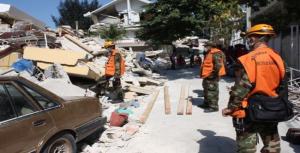-Alex Dmuchovsky
As many modern sociologists (and probably most academia) would agree, some of the most important assets to a developing country are its agrarian society and natural resources. As one current author puts it: “…Agriculture is the most climate sensitive of all economic sectors,” leading to the conclusion that, “…Developing nations will be more adversely affected by climate change than developed countries” (Steger, p. 96). Add an unrelenting tropical climate to the mix, and you’ve got an almost guaranteed recipe for disarray.
The Central American country of Nicaragua, seated about midway between North and South America, is not a rookie when it comes to dealing with the precipitation the tropics have to offer. However, recent rains have substantially disrupted the daily proceedings of the “Caribbean” portions of the pan-American nationality. Almost twenty-thousand people are enduring the severe flooding that occurred after a series of tropical storms passed along the Prinzapolka, Pía, and Bambana rivers. Mayor of a significant portion of the affected region, Ekland James Molina, has proclaimed the illness and crop loss resulting from the flooding as a “disaster” in urgent need of medical attention, of which the Nicaraguan government has both slowly and inadequately responded to.
To worsen the conditions surrounding the extreme environmental events, Nicaragua was ranked 3rd in a study that tested the vulnerability of climate change based upon regions that experienced the most extreme weather events, per the 2013 Germanwatch Global Climate Risk Index. One of the major causal factors of this ranking is that a majority of Nicaragua’s economic stability and workforce emerges from the agricultural sector. In a developing society such as this, the ability to recover from losses to both human life and crop sources is substantially diminished. To put this in perspective, the United States lost approximately 1,833 people to Hurricane Katrina 2005; but in 1998, “Hurricane Mitch” caused at least 3,800 deaths in Nicaragua. To a country with a landmass smaller than several of the US states, the impact of environment on the prosperity of such a nation is markedly greater than in much of the globe’s developed, or “first-world” nations.
Reference(s):
http://www.nicaraguadispatch.com/news/2013/06/flooding-affects-thousands-in-prinzapolka/8029
http://www.cnn.com/video/data/2.0/video/bestoftv/2013/06/17/exp-gps-0616-witw-canal.cnn.html
http://en.wikipedia.org/wiki/Hurricane_Katrina
http://www.elnuevodiario.com.ni/especiales/295393-ayuda-mitiga-hambre-prinzapolka
http://qnicaragua.com/2013/04/15/more-hurricane-threats-to-nicaragua-in-both-coasts/
Steger, Manfred (2013), Globalization: A Very Short Introduction, Oxford University Press

I agree that Americans wouldn’t normally take into account the devastating effects that weather and climate can have on developing nation because it normally hardly effects our day to day lives unless it is truly destructive. Plus with global climate change these nations will struggle even more severely.